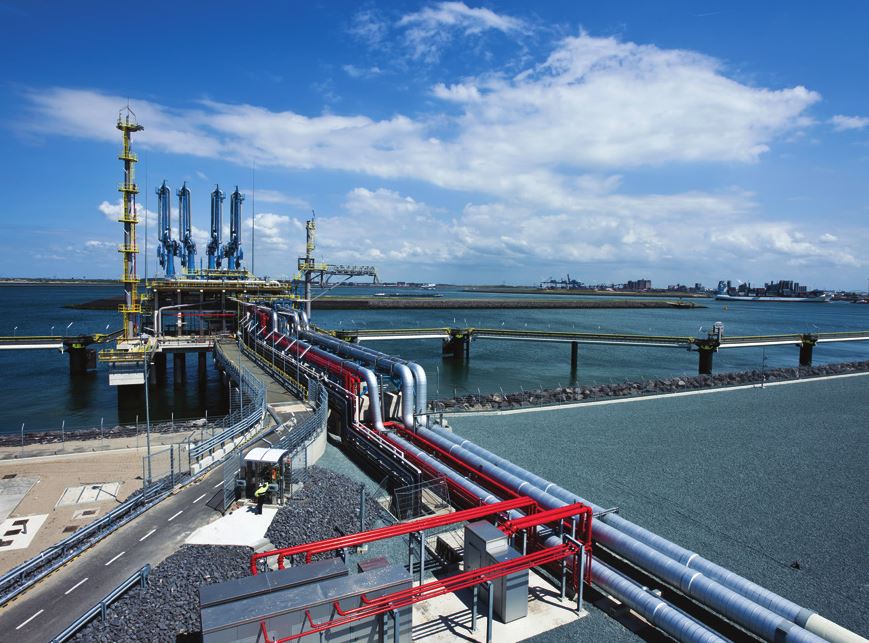Russia’s Gazprom said on Tuesday it has completely suspended gas deliveries to Dutch trader GasTerra after the latter refused to pay for gas supplies in rubles.
In March, Russia said that foreign buyers must pay for Russian gas in rubles instead of euros or dollars.
“As of the end of the working day on May 30, Gazprom Export did not yet receive a payment from GasTerra for the gas supplied in April,” the state-owned firm said in a statement on Tuesday.
“Payments for gas supplied since April 1 must be made in rubles via new account details, of which the counterparties were duly informed,” Gazprom said.
Prior to this move, Gazprom halted supplies to Poland’s PGNiG, Bulgaria’s Bulgargaz, and Finland’s Gasum for the same reason.
GasTerra is 50 percent owned by the Dutch government. Units of Shell and ExxonMobil each hold 25 percent in the gas trader as well.
The firm said in a statement on Monday it had decided “not to comply with Gazprom’s one-sided payment requirements.”
This is because to do so would risk breaching sanctions imposed by the EU and also because there are too many financial and operational risks associated with the required payment route, according to GasTerra.
“In particular, opening accounts in Moscow under Russian law and their control by the Russian regime pose too great a risk for the Groningen company,” it said.
GasTerra said it has “repeatedly urged Gazprom to respect the contractually agreed payment structure and supply obligations, but to no avail.”
2 bcm of gas
The cessation of supply by Gazprom means that, between now and October 1, 2022, the date on which the contract ends, GasTerra would not receive about 2 billion cbm of contracted gas.
However, the firm said it has anticipated this by buying gas from other providers.
“The European gas market is highly integrated and extensive. However, it is impossible to predict how the lost supply of 2 billion cbm of Russian gas will affect the supply/demand situation and whether the European market can absorb this loss of supply without serious consequences,” GasTerra said.
GasTerra firm did not reveal where it had purchased the supplies and whether they include LNG volumes as well.
The Dutch Ministry of Economic Affairs and Climate Change said via social media that this decision would have no consequences for the physical delivery of gas to Dutch households or the business sector.
LNG boost
A spokesperson for Dutch gas grid operator Gasunie told LNG Prime via email that the stoppage of gas supply to GasTerra “does not affect Gasunie’s operations.”
Gasunie has already chartered two floating storage and regasification units for its planned terminal in Eemshaven, as part of plans to phase out Russian gas.
They will serve the second Dutch LNG import terminal in Eemshaven.
Belgium’s Exmar and Gasunie signed a five-year charter deal for the 120 meters long FSRU S188 in March. The FSRU is already on its way to the Netherlands.
In addition to this unit, Gasunie also signed a charter deal for a larger FSRU with US LNG player New Fortress Energy.
This FSRU would also arrive in Eemshaven in August this year, such as the first unit.
Exmar and NFE did not name the vessel but it is probably the 174,000-cbm Golar Igloo.
With these two FSRUs, the Eemshaven facility would have a capacity of 8 bcm per year.
This adds to the Gate LNG import terminal, operated by Gasunie and Vopak, in the port of Rotterdam.
The LNG terminal currently has a capacity of 12 bcm or 8.8 mtpa of LNG, but it will boost it to 13.5 bcm from 2024 as part of a deal with Germany’s Uniper.
Gate regasified about 1.15 bcm during March, 15 percent above its nameplate capacity.
The terminal continues to work well above capacity and Gasunie and Vopak plan to boost the capacity to at least 16 bcm per year.

